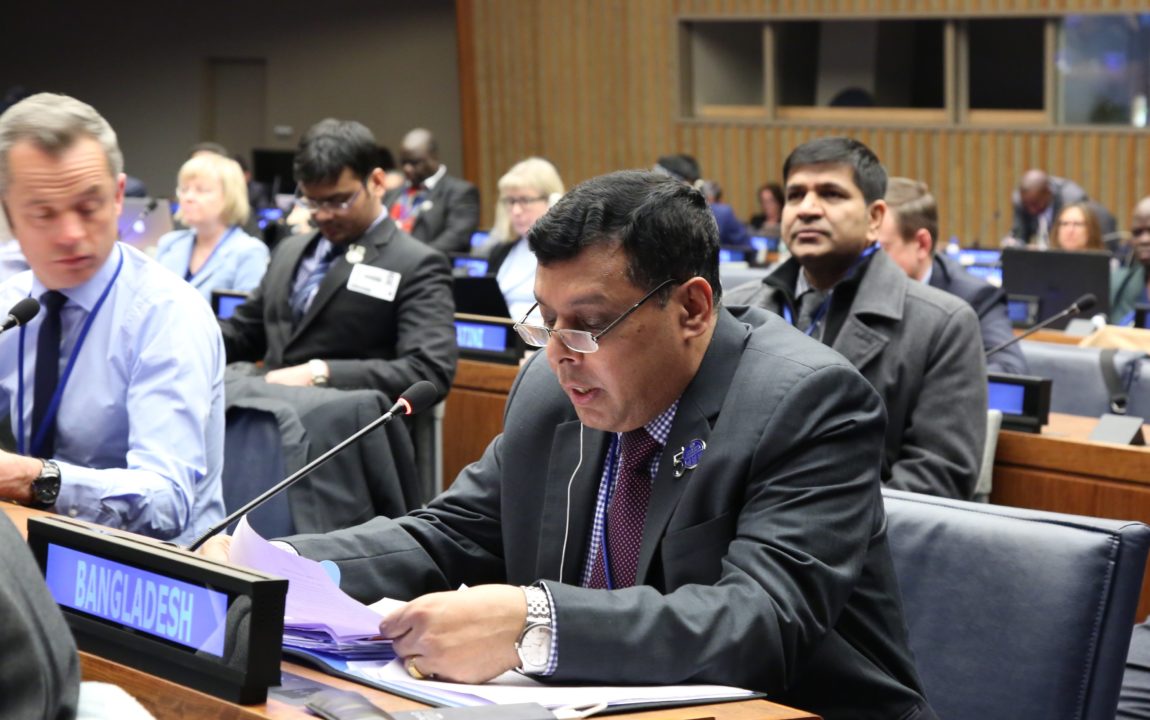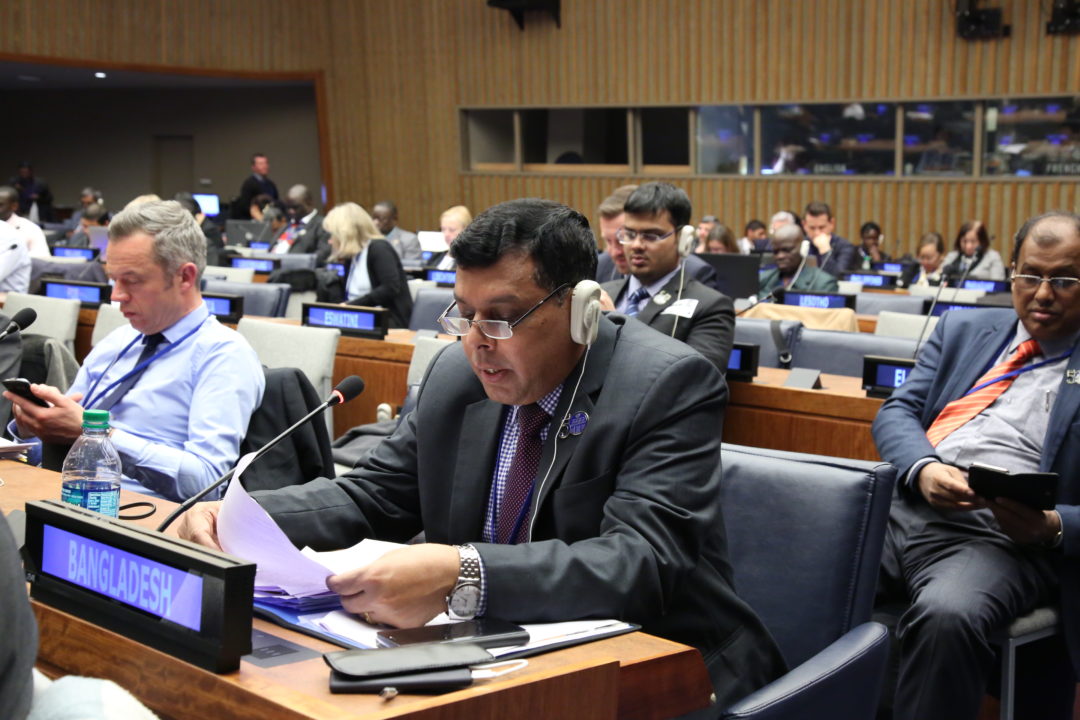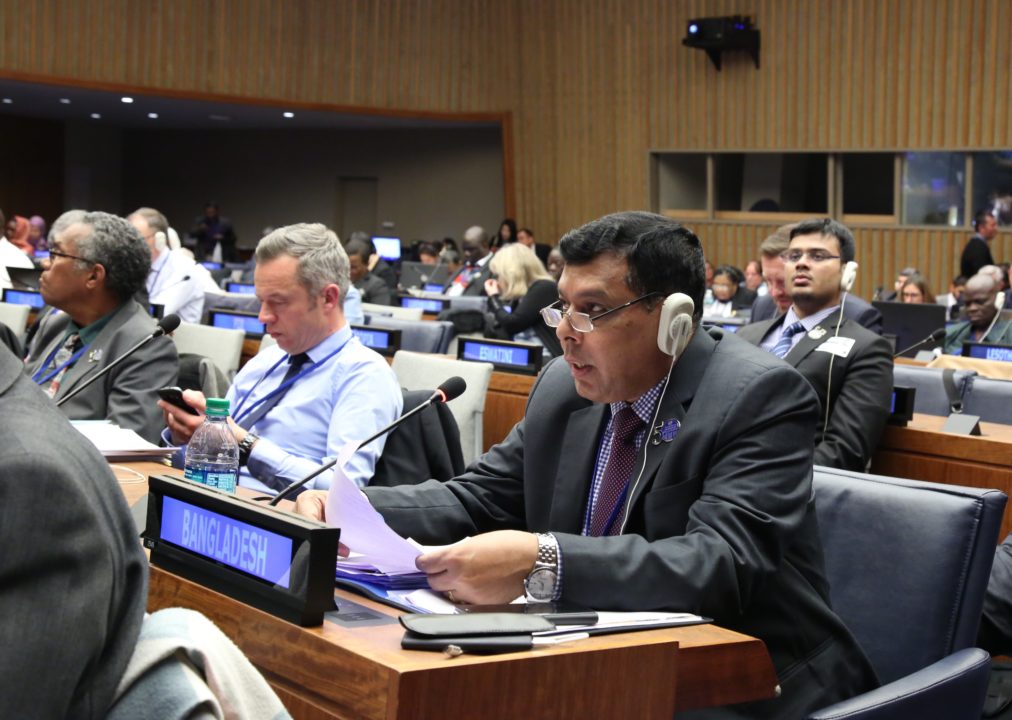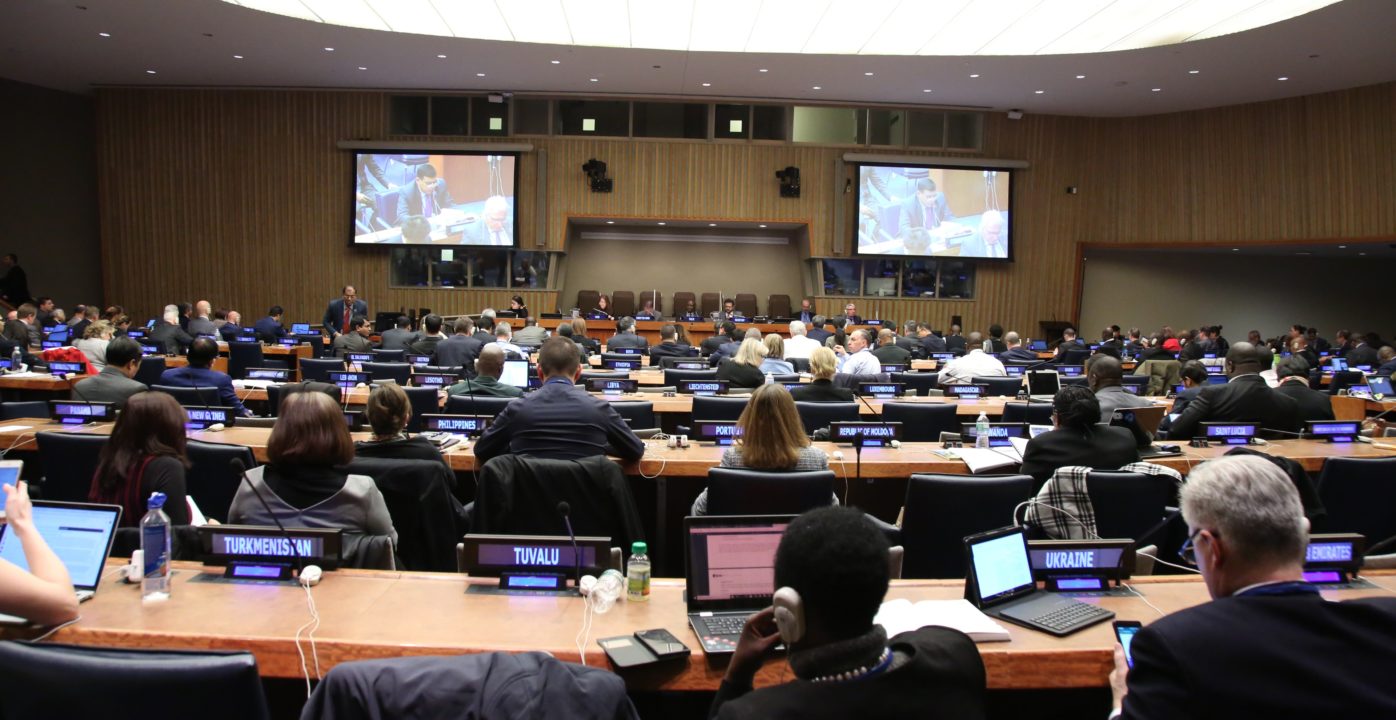New York, 08 March 2019:
The 50th Session of the United Nations Statistical Commission was held from 5-8 March 2019 in the UN Headquarters in New York. Led by Mr. Saurendra Nath Chakrabhartty, Secretary, Statistics and Informatics Division, a high level delegation attended the meeting.
The Secretary of Bangladesh Statistics and Informatics Division in his interventions mentioned that the 2030 Agenda has vast data needs and ensuring that no one is left behind requires data at an unprecedented level of granularity. Hence, more financing is required for data and statistics. Mentioning Bangladesh’s commitment to implement the SDGs, he stressed on having a robust international cooperation framework for enhancing the capacity of the national statistics offices of countries like Bangladesh. He also referred to the creation of the National Data Coordination Committee (NDCC) by the Prime Minister to facilitate effective coordination between data providing agencies and the BBS as well as to provide guidelines for SDGs data generation and international reporting. Bangladesh delegation also underscored the importance of innovation in addressing the data challenges.
Bangladesh delegation’s chief also highlighted the activities of the Bangladesh Bureau of Statistics including different surveys and censuses conducted by it that feeds into national development planning. He also mentioned about Bangladesh’s Statistical Act 2013 which provides a strong legal support for statistical activities.
The Bangladesh delegation actively engaged in different sessions of the Commission’s four day long meeting particularly on Data and indicators for the 2030 Agenda for Sustainable Development, Fundamental Principles of Official Statistics, Open Data, National Quality Assurance Frame Work, Regional Statistical Development, National Accounts, Finance Statistics, International Trade and Business Statistics, Industrial Statistics, Environmental Economic Accounting, Disaster Related Statistics, International Migration Statistics, Crime and drug and drug use etc.
The meeting discussed in detail several issues relating to data and the capacity building of the national offices for statistics particularly the developing countries. The focus of the discussion was the challenges that hamper the availability of reliable, quality and timely data which are essential for the implementation of the 2030 Agenda.
The statistics office of different countries participated in the meeting and many of them highlighted the importance of strengthening the capacity of the UN Statistics Division so that it can provide better support to the countries which have weak data producing capacity. Vice President of ECOSOC addressed the opening session and called upon the member states to strengthen data cooperation to accelerate the pace of implementation of the 2030 Agenda.
The Theme of this year’s meeting was “Better Data Better Lives”.
***




